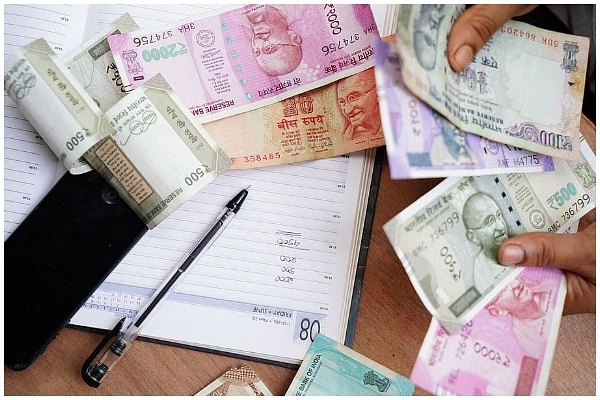Business
With DDT Gone, Companies May Tweak Dividend Policies To Help Promoters, HNWIs
- The case for high dividend payouts now looks less attractive than when DDT was around.

Currency notes
As dividend season is upon us, it may make sense for corporations to rethink their dividend payment policies due to the tax changes introduced in the last budget. It may mean paying less or no dividends, and instead compensating shareholders through bonus, share splits and even rights issues.
In the 2020-21 Union budget, the dividend distribution tax (DDT) was abolished and replaced with tax deduction at source (TDS) and actual taxation of dividends as part of your total income, paid at your tax bracket.
Those earning below the minimum tax exemption limit of Rs 2.5 lakh per annum (Rs 3 lakh for senior citizens) can avoid TDS by submitting forms 15G or 15H to companies, the latter being for senior citizens.
But this leaves companies with a problem, especially from the point of view of taxation of promoters and high net worth individuals (HNWI) and high dividend earners in general.
Some companies beat the problem for this year by announcing high interim dividends before 31 March 2020, which means they may pay out less later this year. But the rest have to rethink their dividend policies.
The earlier DDT method of taxing dividends had to go because it was iniquitous: it taxed dividends at the corporate end, which meant that individuals with taxable incomes below the tax-free levels ended up paying the tax indirectly. On the other hand, high dividend earners, mostly promoters and HNWIs, ended up paying less tax, since the tax cut at the corporate end was lower than the tax they would have paid at their personal tax brackets.
But companies still have ways to reward HNWIs by changing dividend policies. Reason: the taxes on short-term and long-term capital gains (STCG and LTCG) is still lower than taxes at the highest income tax brackets. STCG on shares on which securities transaction tax is paid is 15 per cent (plus cess), and LTCG is 10 per cent plus cess. This is much lower than individual top income tax rates of 30 per cent plus surcharge plus cess.
If companies were to change dividend policies to bring down overall payments, but at the same time rewarding shareholders with bonus issues or share splits, the tax burden would be far less.
Bonus shares are valued at zero, which means after a year they qualify for LTCG rates, which is 10 per cent. A share split gets similar benefits from LTCG. A Rs 10 share split into two Rs 5 shares would qualify for LTCG at half the purchase price. Rights issues made at steep discounts to market prices may also be another way of rewarding shareholders.
To be sure, companies need to be flexible here. They should make higher dividend payouts when market prices of shares are low, and lower payouts when market prices are high.
But the case for high dividend payouts now looks less attractive than when DDT was around.
Support Swarajya's 50 Ground Reports Project & Sponsor A Story
Every general election Swarajya does a 50 ground reports project.
Aimed only at serious readers and those who appreciate the nuances of political undercurrents, the project provides a sense of India's electoral landscape. As you know, these reports are produced after considerable investment of travel, time and effort on the ground.
This time too we've kicked off the project in style and have covered over 30 constituencies already. If you're someone who appreciates such work and have enjoyed our coverage please consider sponsoring a ground report for just Rs 2999 to Rs 19,999 - it goes a long way in helping us produce more quality reportage.
You can also back this project by becoming a subscriber for as little as Rs 999 - so do click on this links and choose a plan that suits you and back us.
Click below to contribute.
Latest